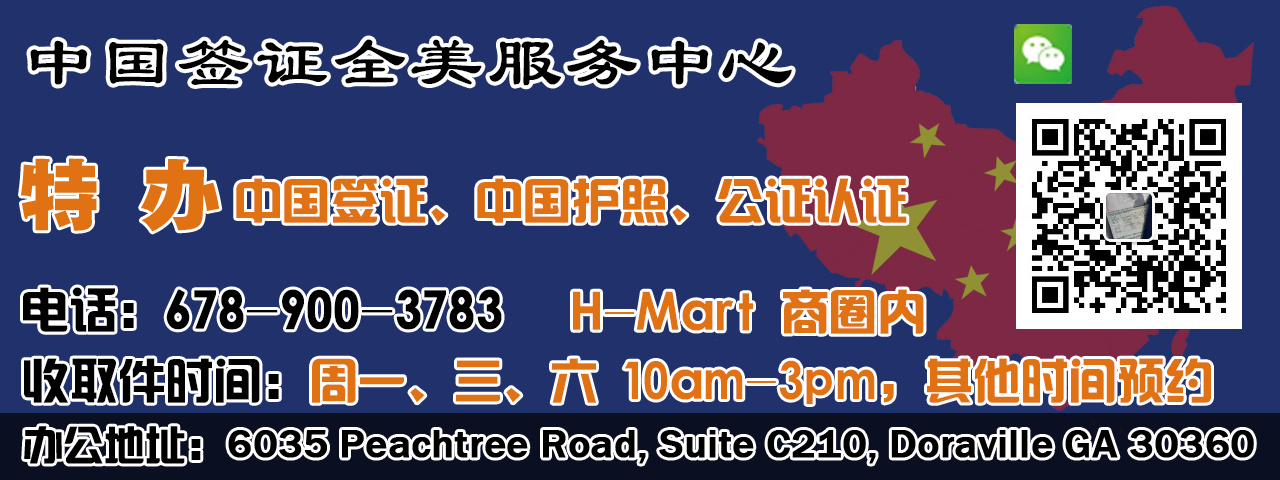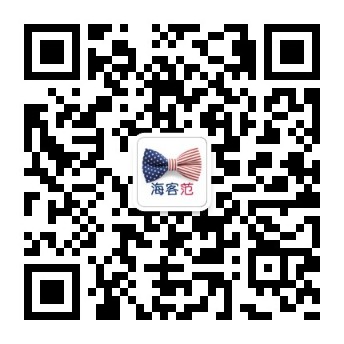
講案例故事,學美國法律| 見義勇為免責法
美國法律紛繁複雜,在這裡生活的中國人一定要學習基本的法律知識,不僅要做到知法懂法不犯法,還要學會保護自己的合法權益。亞特蘭大華人生活網請到亞城知名律師方蕾為您講案例故事,學美國法律。今天方律師給大家講的是「免責法規」,跟方律師一起來學起來!
大家好!
今天我要與大家分享兩項重要的「免責」法規:《善良的撒馬利亞人法規》和《主權豁免權法令》,以及相關的法案。
《善良的撒馬利亞人法規》保護醫生及醫護人員,甚至路人,在緊急情況下若向他人提供「自願」、「無償」急救醫護措施,該醫生,醫護人員,或路人就無需為因急救[醫護]措施而造成他人任何民事損害承擔責任。《主權豁免權法令》則是保護在聯邦或州政府工作的醫生及醫護人員在醫療責任糾紛訴訟案中免於個人責任。

「善良的撒馬利亞人」之名取自聖經(《路加福音》10:25-37)中記載的「善良的撒馬利亞人」的故事。這個故事講述了來自撒馬利亞地區的一名旅客,不顧宗教和種族背景的衝突,主動救助另一名遭到歹徒毆打和搶劫的旅客。
美國第一部《善良的撒馬利亞人法規》是1959年在加利福尼亞州頒發的。該法規規定任何「在緊急狀況及現場提供真誠急救護理的醫生不應對其在提供該急救護理時的任何行為或過失所產生的任何民事損害承擔責任」。該法規的制定旨在鼓勵醫生在緊急情況下給受傷之人提供急救治療,而無需擔心醫療過失責任。
之後,美國的其它州也都相繼制定並實施了類似的法規。個州的相關法規根據可受保護的人群及急救措施,可分為三類:
1) 除了特定例外情況,只有受過醫療專業培訓的人士才能免於民事損害責任。也就是說此法規只適用保護受過醫療專業培訓的人士(如醫生,護士等)。這一類法規實行範圍包括康涅狄格州、伊利諾斯州、肯塔基州、密歇根州,和密蘇里州五個州。
2) 雖適用於任何人,但急救措施必須具有「醫療救助」性(如「急救」,「醫療護理」和「保健護理」等提供醫療援助)。第二類法規實行範圍包括愛達荷州、北卡羅來納州、俄克拉何馬州,和俄勒岡州四個州.
3) 廣泛適用保護提供急救醫護、治療,或任何援助措施的任何人。這一類廣泛實用於其他各州。
因此,大部分美國州頒發的《善良的撒馬利亞人法規》適用保護任何人(不僅限於受過醫療培訓的人士),為其提供因在緊急狀況及現場實施真誠的急救,護理,或治療等措施而產生的民事責任/損害賠償的免責庇護。

在 2016年發生的Carter 訴 Reese 案 (N.E.3d 2016,2016 WL 4549025, Ohio) 中,卡車司機 Carter 起訴路人 Reese 行為過失 (但並非故意惡意的草率不當行為),導致他腿部嚴重受傷,以至截肢。
Reese 以俄亥俄州的《善良的撒馬利亞人法規》作為辯護,因為 Reese是在聽到 Carter 的呼救聲後,自願主動前往現場提供緊急援助的。當時,Carter 在跳到裝載平台上想要關上拖車車門時,突然滑倒,他的腿被夾進了平台和拖車之間。Carter 無法自行解困,於是大喊呼救。Reese 是在聽到 Carter 的呼救,自願主動上前提供幫助。但不幸的是,在 Reese 試圖移開壓住 Carter 腿的牽引拖車時,他將卡車向反方向滑動,進而造成 Carter 的腿部嚴重受傷,以至不得不進行膝上截肢。
初審法院裁定 Reese 勝訴。Carter 提出上訴。
俄亥俄州上訴法院基於本州的《善良的撒馬利亞人法規》,該法規明確規定:
任何人都不應為在緊急狀況及現場實行急救護理或治療等行為所引起的民事損害承擔責任,除非該行為是故意或草率不當行為,以及該法規的制定的歷史和解釋確認,俄亥俄州的《善良的撒馬利亞人法規》適用於在緊急狀況及現場提供實施急救護理或治療的任何人,包括非醫療專業人士;俄州上訴法院還認為該法規中所說的「實施急救護理」包括出於他人的安全和健康考慮而提供的醫療救助和其他任何形式的救助,並且該法規中所說的「緊急」是指不可預見的意外事件或需要立即採取行動措施的緊急狀況。
在此案中,Carter 的腿被意外地夾住,無法自拔,需要立即幫助,因此 Carter 當時的狀況屬於「緊急」 狀況;Reese在 Carter 的緊急狀況下,當場立即對 Carter 採取了救助措施是符合《善良的撒馬利亞人法規》中所說的「實施急救護理」。因為 Reese 的行為不存在涉嫌故意惡意或草率不當行為。
俄亥俄州上訴法院裁定Reese 因受《善良的撒馬利亞人法規》保護,免除民事損害責任。就此,俄亥俄州上訴法院維持了初審法院的判決。
總之,這個法案進一步確認俄亥俄州(也是美國大多數州)的《善良的撒馬利亞人法規》適用保護任何人,不僅限於醫療專業人士;並且適用任何形式的救助,不僅限於醫護/療救助。

下面的法案強調《善良的撒馬利亞人法規》僅適用於主動自願提供幫助的「無薪/報酬志願者」,而不適用於在僱傭職責範圍內或出於薪酬回報而提供醫治援助的醫護人員。
在 Home Star Bank and Financial Services 訴 Emergency Care and Health Organization, LTD. 案 (6 N.E.3d 128, 379 Ill. Dec. 51, 2014 IL 115526, 2014 Illinois) 中,伊利諾斯最高法院裁定,依據《善良的撒馬利亞人法規》,急診室醫生在醫院回復應急「Code Blue」時試圖在重症監護室內急診為患者插管治療的行為不屬於「免費」無償為患者治療的行為,即使這位急診室醫生對患者的插管治療並沒有收費。在此案中,原告起訴被告 Murphy 醫生及其僱主,指控 Murphy醫生在治療患有會厭炎的患者Anderson 時存在過失疏忽,導致患者 Anderson 遭受嚴重的永久性腦損傷。原告聲稱 Murphy 醫生對Anderson 的[過失]護理和治療是造成 Anderson 腦損傷的原因。Murphy 醫生否認了原告的指控,聲稱自己應受《善良的撒馬利亞人法規》保護,免除他對過失疏忽的責任,因為他是向 Anderson 提供急救治療,且 Anderson 未為此治療付費。
初審法院根據《善良的撒馬利亞人法規》判決被告 Murphy 醫生及其僱主勝訴。原告向上訴中級法院提起上訴。上訴中級法院認為該法規僅適用於志願者,不包括在僱傭職責內治療患者並為此獲得薪酬的醫護人員。鑒此,上訴中級法院推翻了初審法院的判決。Murphy醫生及其僱主向更高一級的最高法院提起審訴。
最高法院認為《善良的撒馬利亞人法規》的宗旨在於鼓勵人們即使在沒有義務的情況下也要[積極]採取行動。最高法院同時也認同上訴中級法院的判決,認為 Murphy 醫生為 Anderson 提供的插管治療服務不能認為是「免費」的義務服務。Murphy 醫生是有薪酬且有職責應對急診狀況的(例如回應醫院 Code Blues 等緊急情況)。Murphy 醫生應對急診狀況並不是出於志願幫助,而是因為他的工作職責需要這樣做。因此,Murphy醫生基於他的醫責向 Anderson 提供急救護理治療的行為不應受《善良的撒馬利亞人法規》的保護。鑒此,伊利諾斯最高法院維持上訴中級法院的裁決。
類似地,在 Chau 訴 Riddle 案 (254 S.W.3d 453, 2008 Texas) 中,值班麻醉醫師及他的所屬團隊因在對原告新生兒進行插管治療時的過失疏忽行為(導致該嬰兒缺氧並造成其腦損傷)而遭到起訴。被告聲稱他的所謂的過失疏忽行為應受《善良的撒馬利亞人法規》的保護而豁免。有證據表明,這位麻醉醫師是產科接生團隊中的一員,且在需要時為新生兒插管是他醫責的一部分。因此,德克薩斯州最高法院強調,雖然《善良的撒馬利亞人法規》旨在提升醫護人員主動自願參與緊急醫護援助的積極性,即使該緊急醫護援助發生在醫院內,但該法規必須確保只有醫護人員的真正志願的醫護援助行為才能受到該法規的保護和免責,而屬於醫護人員正常職業范籌內的醫療診治行為是不能受該法規的保護及免責的。
基於《善良的撒馬利亞人法規》, 聯邦航空管理局 (FAA)在1998年制定了航空醫療救助法規確定在飛機上發生緊急情況時志願提供救助的醫護人員享有免責權。根據該航空醫療救助法規,「如果醫護人員在飛機飛航當中[對病人或受傷人員]採取或試圖採取緊急醫護援助,醫護人員在聯邦或州的民事法庭因醫護不當或過失疏忽而被起訴訟時應當免責,除非該醫護人員,在提供緊急醫護援助時,犯有重大疏忽或故意失職等不當行為」。
根據該聯邦法規,醫護人員是指在美國任何州具有醫護執照或證書,或其他認資可以提供醫療服務,包括醫生、護士、醫師助理、護理人員,及急救醫務人員。聯邦航空管理局 (FAA) 還建議[航空工作人員在接受醫療援助前]要認真查證作為醫護專家的乘客的醫護憑證。
總之,基於這兩個法規的保護,希望我們每個人更應該成為善良的撒馬利亞人,在他人遇到緊急狀況需要援助時,能義無反顧的向前獻上我們真誠的救助。若在飛機上發生緊急情況需要醫護救助時,醫生,醫護專家們也應該毫無顧忌,志願,積極,認真地提供專業緊急醫護援助。
《主權豁免權法令》作為免責法令可以適用於許多領域。在醫療責任糾紛訴訟案中,《主權豁免權法令》可以豁免為聯邦或州政府工作的醫護人員在有政府為被告的訴訟案中的個人責任。為聯邦或州政府工作的醫護人員包括在公立教學醫院或政府附屬或擁有的機構工作的醫護人員,及代表政府在海外工作的醫護人員等。因此,公立教學醫院及政府部門的醫生可以受《主權豁免權法令》的免責保護,而私立醫院及診所的醫生就不受這個免責令的保護了。
另外,正如 Pike vs Hagaman (292 Va. 209, 787 S.E.2d 89, 332 Ed. Law Rep.542, 2016)一案,在裁定受雇於州立大學醫院的被告護士是否因《主權豁免權法令》而免責,法庭必須參照考慮以下幾個決定性因素:1)政府的主權及監控性;2)被告個人與政府的相關聯性;及 3)被告個人的判斷及實施權。在 Pike 案中,Virginia 高院法庭參照考慮了這幾個因素後,最終裁定被告護士符合《主權豁免權法令》的免責保護。
作者:方蕾
English version
Good Samaritan Statute
In 1959, California enacted the nation』s first Good Samaritan statute,which provided that no physician or podiatrist, 「who in good faith renders emergency care at the scene of the emergency, shall be liable for any civil damages as a result of any acts or omissions by such person in rendering the emergency care.」 The purpose of this statute is to encourage physicians to provide emergency treatment to injured persons in emergency situations without fear ofliability for malpractice.
Since then, every state has enacted someversion of this legislation. These statutes generally fall into three categories:
1) those that specifically include by reference only medically trained persons;
2) those that apply to the rendition of medical aid by any person; and
3) those that more broadly apply to anyperson rendering emergency care, treatment, or other kinds of assistance without expressly requiring that such actions be medical in nature.
Five states (Connecticut, Illinois,Kentucky, Michigan & Missouri) have Good Samaritanstatutes that, with certain exceptions, expressly exclude only medically trained persons from liability for civil damages.
Four states (Idaho, North Caroline,Oklahoma & Oregon) have Good Samaritan statutes that apply to any person but expressly limit protection from liability to the rendering of medical aid through use of terms such as 「first aid,」 「medical attention,」 and 「health caretreatment.」
The remaining states have Good Samaritan statutes that broadly apply to any person who renders emergency care, treatment, or other kinds of assistance without an express requirement that those acts be medical innature.
Therefore, most of the states in US enact Good Samaritan statutesthat shield any person, not limited to only medically trained persons, from civil liability/ damages for administering emergency care ortreatment at the scene of an emergency in good faith.
In Carterv. Reese (N.E.3d 2016, 2016 WL 4549025), the truck driver Carter sued the passerby Reene for negligence. There, as the truck driver Carter pulled himself onto the loading dock to close the trailer door, he slipped and his leg became wedged between the loading dock and the trailer. Carter could not free himself and yelled for help. Reene heard Carter and[voluntarily] offered to help. Unfortunately, while Reene was attempting tomove tractor-trailer that had pinned Carter』s leg, he rolled the truck backwards, thereby injuring Carter』s leg, which had to be amputated above the knee due to the severity of the injuries. Carter sued Reese for negligence (not in willful or wanton misconduct). Reese asserted Ohio』sGood Samaritan statute as a defense and the trial court granted the defense and found for Reene. Carter appealed.
The Ohio』s Good Samaritan statute states: [N]o person shall be liable in civil damages for administering emergency care or treatment at the scene of an emergency, for acts performed at the scene of such emergency, unless such acts constitute willful or wanton misconduct. In view of the historical perspectives and interpretations of the Good Samaritan statute, the Ohio Appellate court affirmed thatGood Samaritan statute applies to any person who administersemergency care or treatment at the scene ofan emergency including, but not limited to, health care professionals; as used in Good Samaritan statute, phrase 「administering emergency care」 includes rendering medical and any other form of assistance to the safety andwell-being of another; as used in Good Samaritan statute, term 「emergency」 means an unforeseen combination of circumstances or the resulting state that calls for immediate action.
Here, Carter stuck his leg and could not free himself from a situation that resulted from an unforeseen combination of circumstances and that called for immediate action, and thus constituted an emergency; Reene performed acts at the scene of an emergency that constituted administering emergency care to Carter.Since there is no allegation of willful or wanton misconduct, Ohio Appellate Courtfound Reese not liable in civil damages. Accordingly, the Ohio Appellate Courtaffirmed the trial court』s judgment.
Further, Good Samaritan statutes only apply for volunteers, not to those who treat patients within the scope of their employment and are compensated for doing so.
In HomeStar Bank and Financial Services v. Emergency Care and Health Organization, LTD. (6 N.E.3d 128, 379 Ill. Dec. 51, 2014 IL115526, 2014), the Supreme Court of Illinois held that emergency room physician did not treat patient 「without fee」 for purposes of the Good Samaritan Act when he responded to a code blue at a hospital and attempted to intubate patient in the intensive care unit. Here, plaintiff sued defendant Dr.Murphy andhis employer, ECHO, alleging Dr. Murphy was negligent in treating Anderson, who was diagnosed with epiglottitis, and suffered a severe and permanent brain injury. The plaintiff alleged that Dr. Murphy』s care and treatment of Anderson were the cause of Anderson』s brain injuries. Dr. Murphy denied allegation, asserting that he was immune from liability for negligence under the Good Samaritan Act because he provided emergency careto Anderson, and Anderson was not billed for that care.
The trial courtrelied upon the Good Samaritan Act and found for defendant. Plaintiffs appealed to the Appellate Court. The Appellate Court held that the Good Samaritan Act was meantto apply to volunteers, not to those who treat patients within the scope of their employment and are compensated for doing so, therefore, overruled the trial court』s decision. Defendants appealed to the Supreme Court.
The Supreme Courtstates that the purpose of Good Samaritan Act is to encourage people toact when they otherwise have no duty to do so. The Supreme Courtthen agreed with the Appellate Court』s conclusion that Dr. Murphy did notprovide his services to Anderson 「without fee.」 He was fully compensated and responsible to the emergency (e.g., respond to Code Blues) not because he was volunteering to help but because it was his job and responsibility to do so.Therefore, the Good Samaritan Act does not apply to Dr. Murphy when provided emergency care underhis duty to Anderson. Therefore, the Supreme Court of Illinois affirmed the appellate court.
Similarly,in Chauv. Riddle (254 S.W.3d 453, 2008), the on-call anesthesiologistand his professional association were sued for negligence in intubating plaintiff』s newborn infant deprived him of oxygen and caused brain damage. Defendants asserted immunity/protection from the Good Samaritan statute. There was evidence that the on-call anesthesiologist was part of labor and delivery team and that it was part of his job to intubate a newborn if the circumstances required. The Texas Supreme Court therefore emphasizes that, while Good Samaritan statute is intended to increase the incentives for physicians to respond voluntarily tomedical emergencies, even if theyoccur in a hospital, the exclusions built into the Good Samaritan statute ensure that medical professionals areonly entitled to the defense if their actions are truly voluntary, not simply part of the professional』s ordinary duties.
Aviation Medical AssistanceAct of 1998
Liability protections exist for medical personnel who volunteer to provide assistance on aircraft in the event of anemergency. According to the Aviation Medical Assistance Act of 1998,「an individual shall not be liable for damages in any action brought in a Federal or State court arising out of the acts or omissions of the individual in providing or attempting to provide assistance in the case of an in-flight medical emergency unless the individual, while rendering such assistance, is guilty of gross negligence or willful misconduct.」
According to the federal statute, a medically qualified individual includes any person who is licensed, certified, or otherwise qualified to provide medical care in a State,including a physician, nurse, physician assistant, paramedic, and emergency medical technician.
The Federal Aviation Administration (FAA) suggests that a good faith effort be made to check the credentials of passengers holding themselves out as medical specialists.
Sovereign Immunity
Sovereign liability conferred absolute immunity from lawsuits in favor of the sovereign (ie, the government). Under certain circumstances, physicians working as employees of the federal or state government may be protected against individual liability if the government is substituted as the defendant. In the medical negligence setting, sovereign immunity can operate to protect the clinician, provided there is a credible nexus between physician activity and substantial government interest, and if certain requirements pertaining to government ownership or interest, as well as the nature of physician activity are shown. Specifically, medical personnel working overseas on behalf of the government, those working in teaching hospitals, or institutions affiliated with, or owned by, the government may have relatively more protections against medical negligence lawsuits than private clinicians.
In Pikev. Hagaman (292 Va. 209, 787 S.E.2d 89, 332 Ed. Law Rep. 542,2016), Patient brought medical malpractice action against nurse and state university hospital,alleging negligence in post-surgical care of patient. Nurse filed plea of sovereign immunity. The Supreme Courtheld: nurse』s conduct was essential to carrying out express interest of Commonwealth, as would support finding that nurse was entitled to sovereign immunity; conduct of nurse involved use of judgment and discretion, as would support finding that nurse was entitled to sovereign immunity; and State had high level of control and direction over nurse, aswould support finding that nurse was entitled to sovereign immunity.



